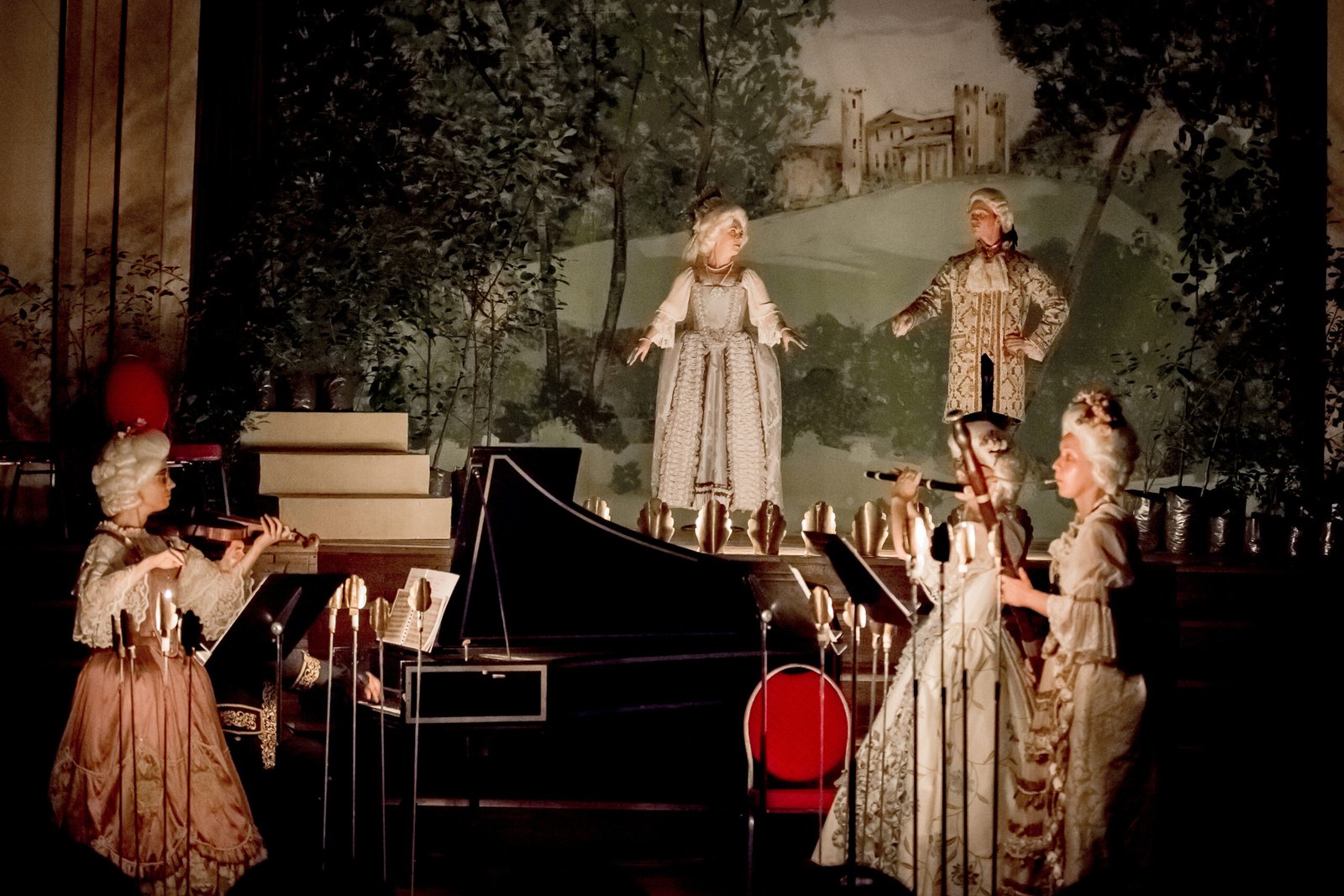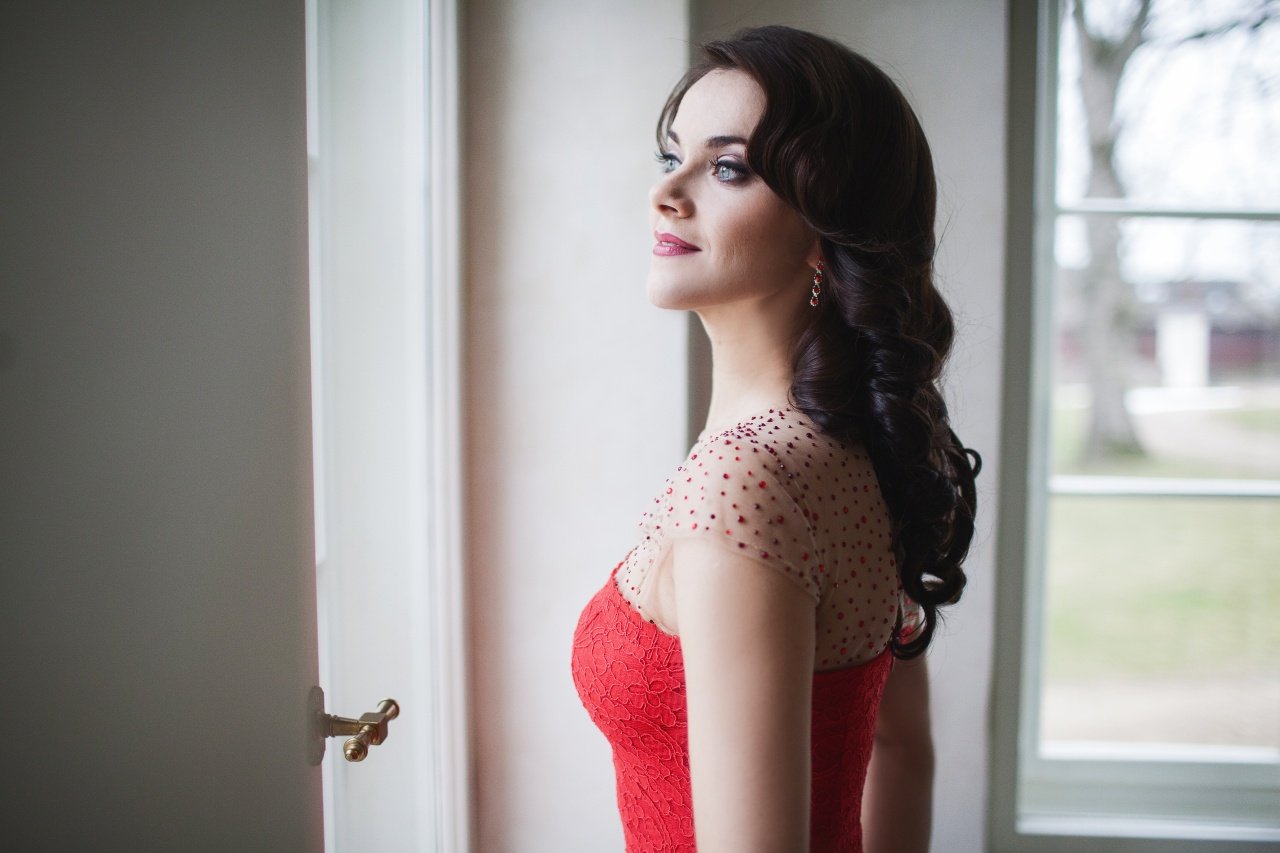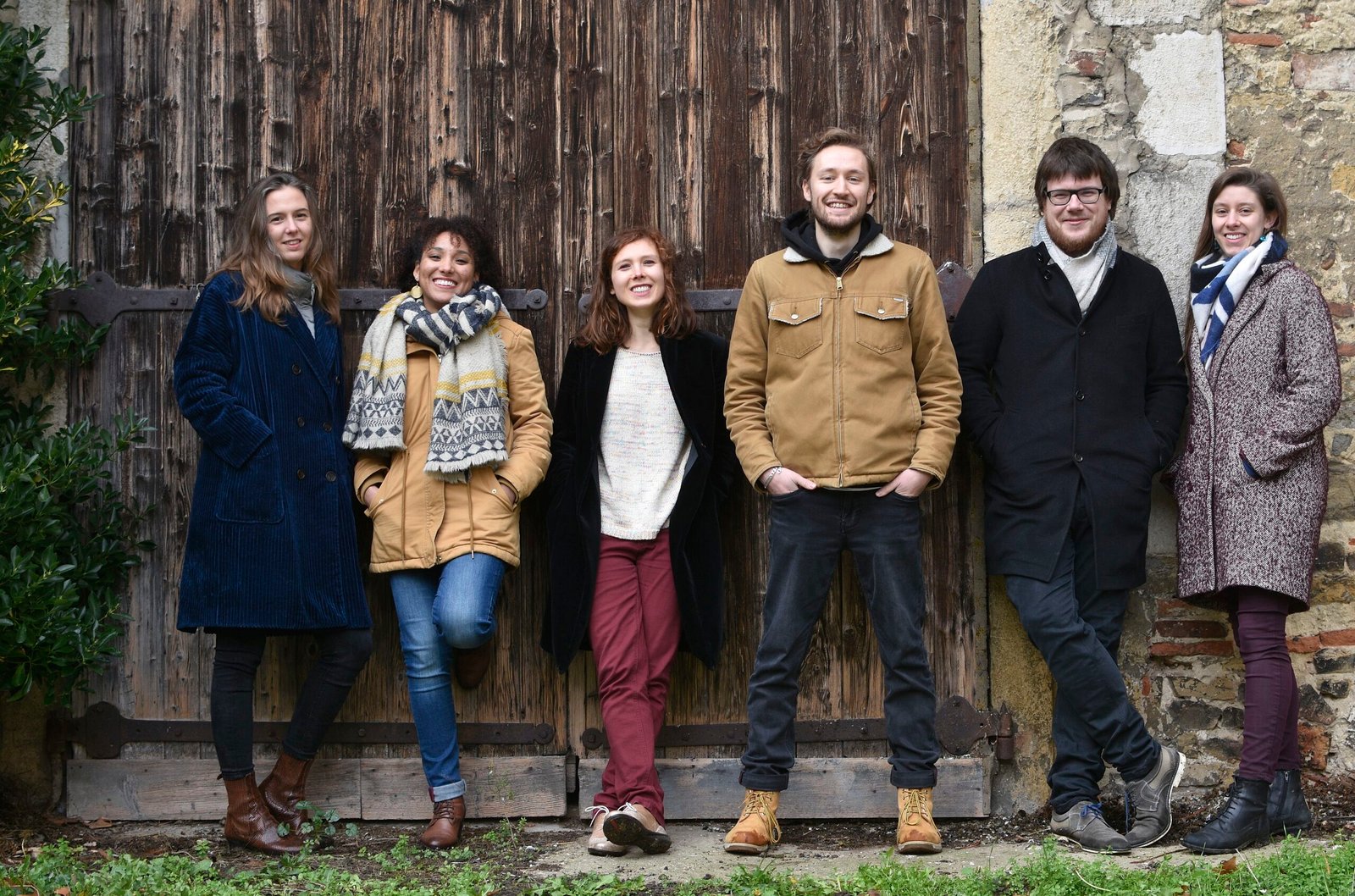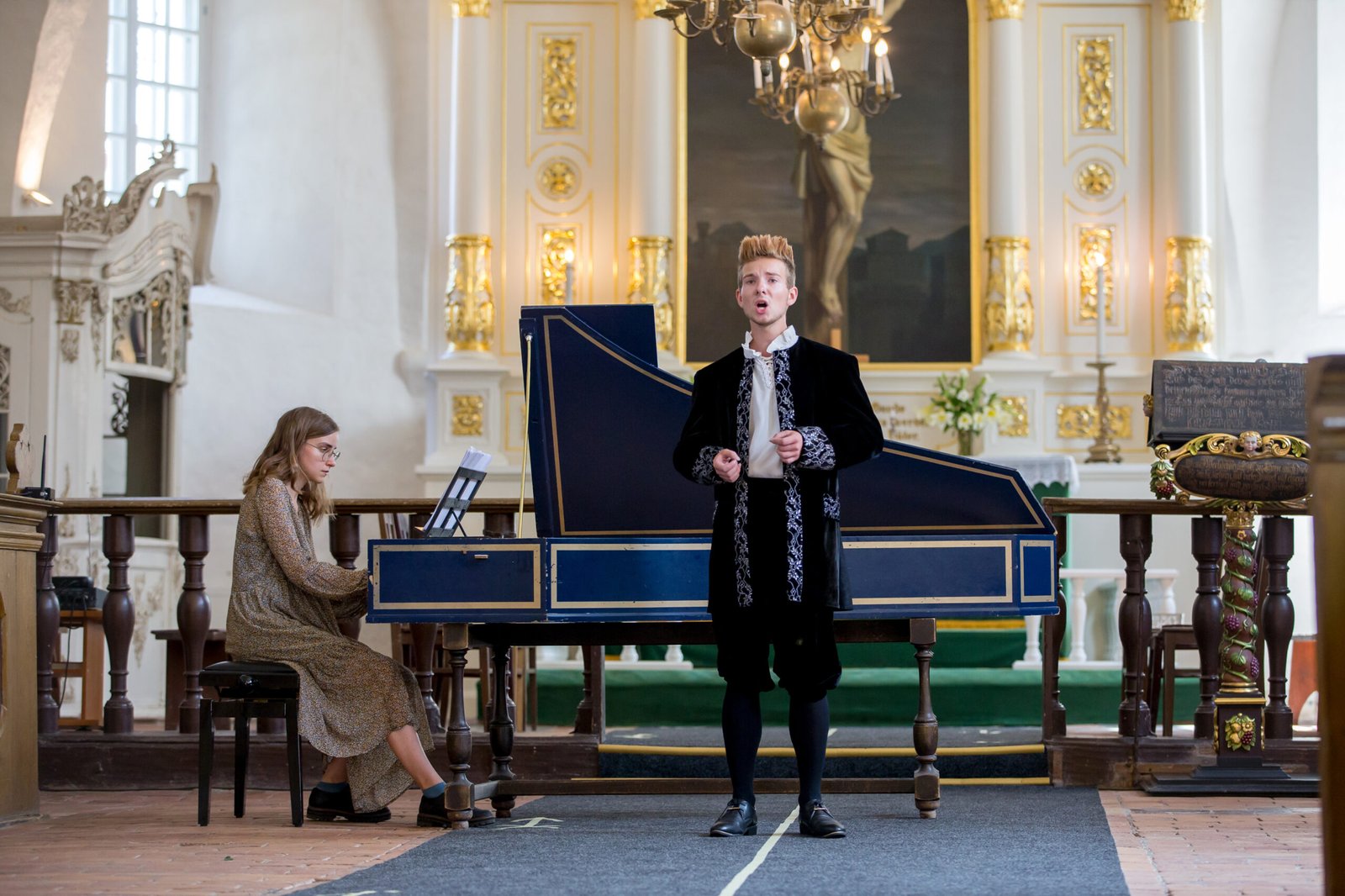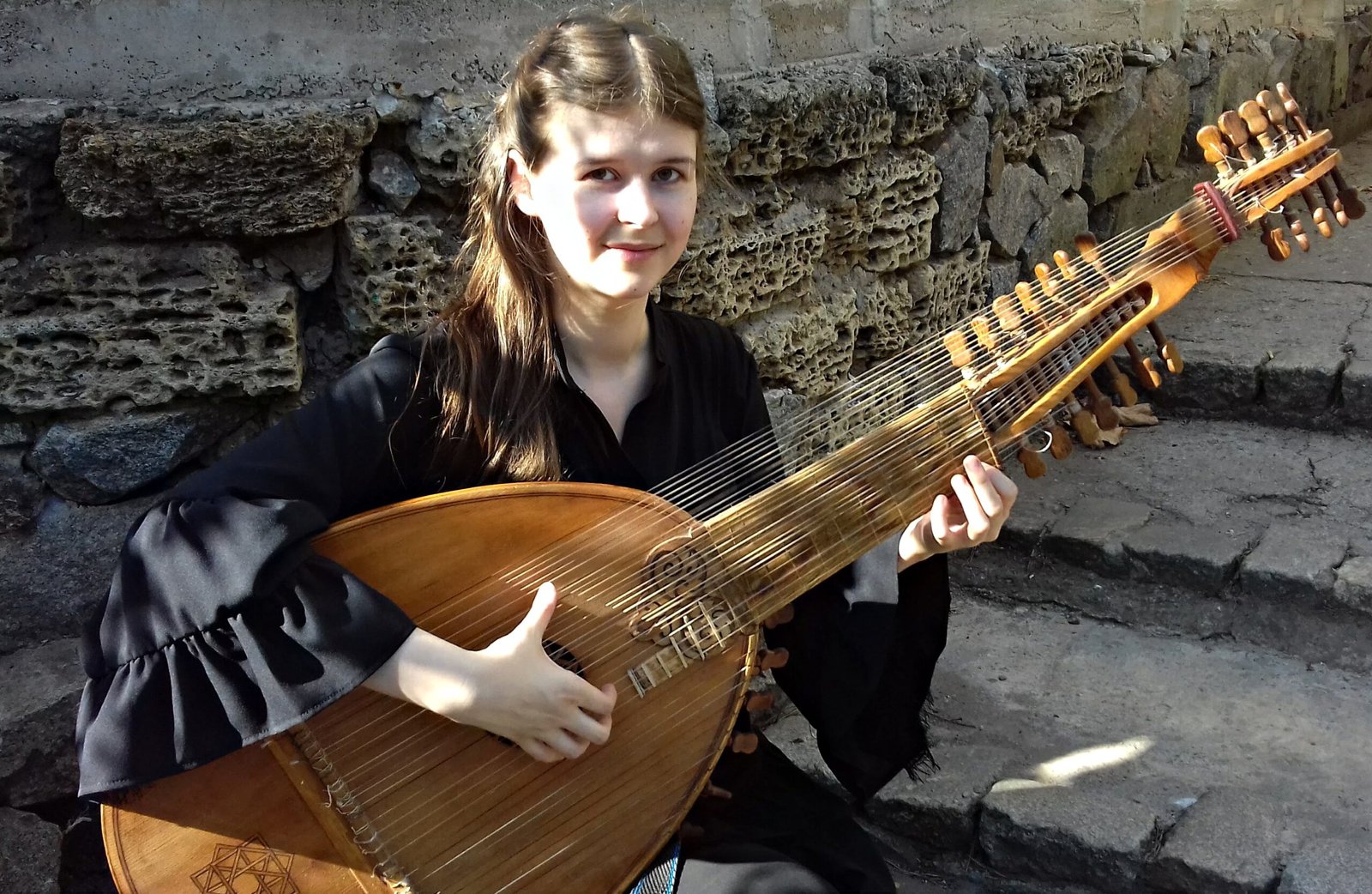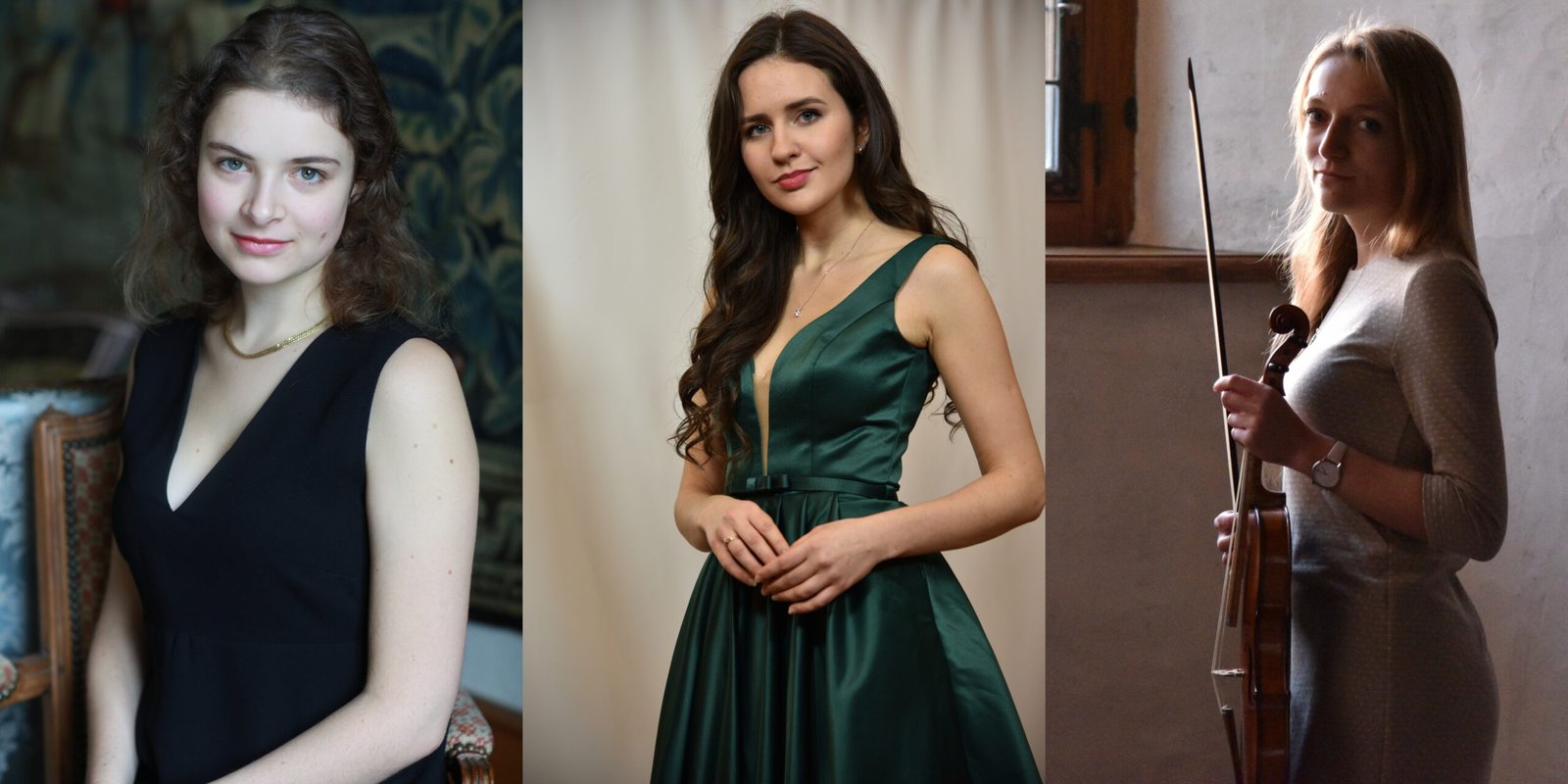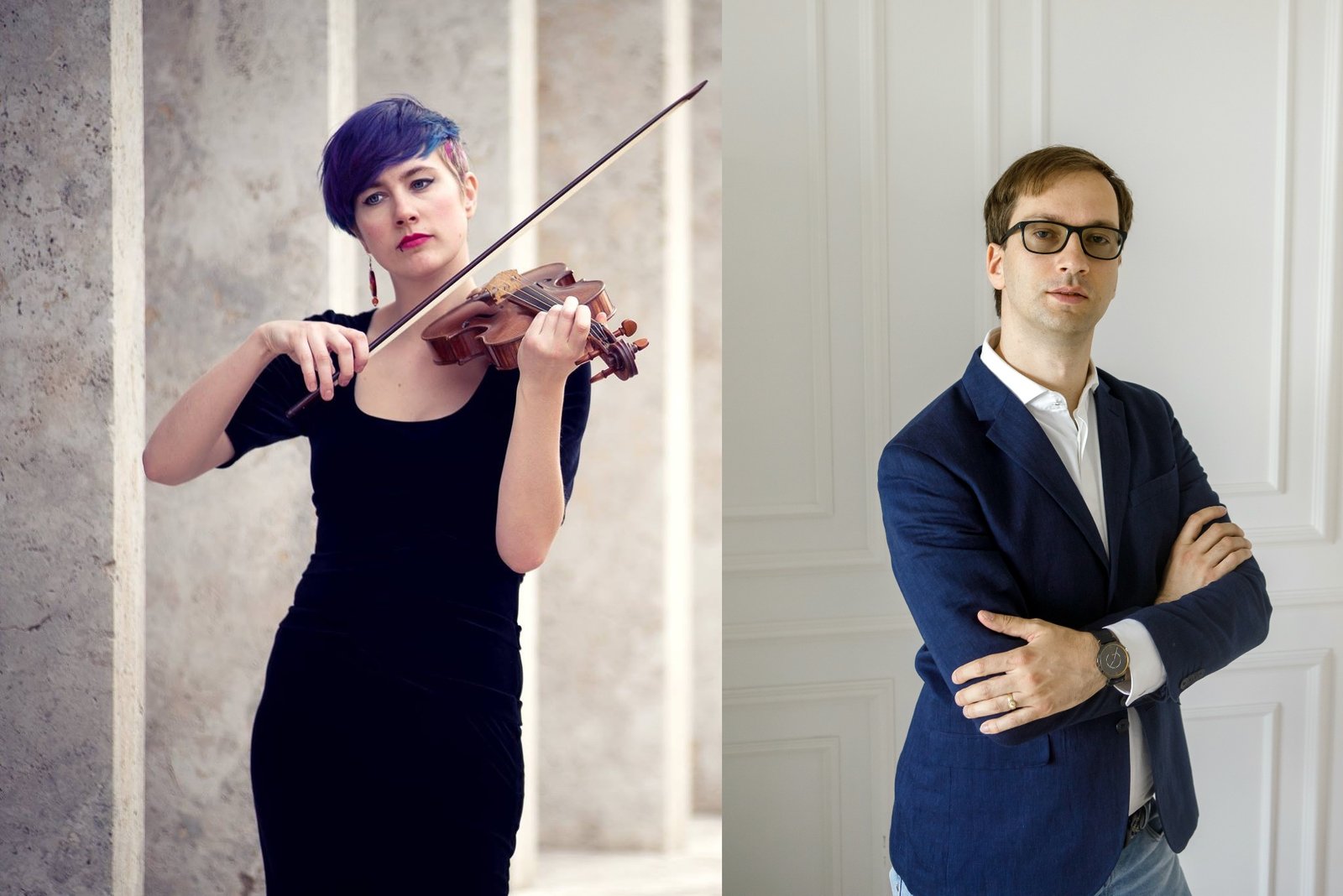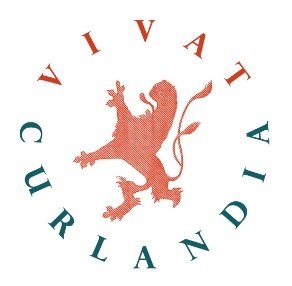PROGRAM 2022
VII Early Music Festival
“VIVAT CURLANDIA!”
9th and 10th of July | BAUSKA, Latvia
11 early music events over the course of 2 days
09 July 12.00 – 13.00 | Bauska Culture Centre
CONCERT FOR CHILDREN
SENIE MŪZIKAS INSTRUMENTI
Before the solemn opening of the VIVAT CURLANDIA! festival, young listeners of early music are invited to get acquainted with historical musical instruments and see a breathtaking, aristocratic dances. Musicians and dancers, dressed in Rococo costumes sewn by the artist Jeļena Forste, will delight the hearts of young listeners with the harmonious sounds of baroque instruments and present how different the harpsichord, baroque violin and viola sound.
In order to conjure up the atmosphere, the hall of Bauska Culture Center will be lit only by candlelight, which will be taken care of by scenographer Artūrs Arnis. After the children’s concert, there will be an opportunity to take photos with dancers and musicians dressed in ancient costumes, see their musical instruments and ask a question of interest to them.
Marianna Puriņa (baroque violin)
Laura Šarova (baroque violin and viola)
Maria Viksnina (torban, Ukraine)
Māris Kupčs (harpsichord)
Baroque dance group led by choreographer Guna Ezermale
Language of the event – Latvian
09 July 13.30 – 14.00 | Bauska Castle courtyard
OPENING CEREMONY OF THE FESTIVAL “VIVAT CURLANDIA!”
09 July 14.00 – 15.10 | Bauska Castle
FESTIVAL’S OPENING CONCERT
IN THE FALL OF THE MIDDLE AGES
For the first time in Latvia, the Early Music Festival “Vivat Curlandia!” will open the outstanding medieval music ensemble EX SILENTIO from Greece. The ensemble’s program “In the fall of the Middle Ages: French tradition and Mediterranean courts” is focusing on the rich secular music of the French tradition between the Ars Nova and the emerging Franco-flemish style, or else linking the 14th with the 15th century. Polyphonic and monophonic pieces by master composers such as Machaut and Du Fay are presented together with rare works from the late medieval Codex of Cyprus (Ms Torino J.II.9) and the Lusignan Court of Nicosia. Last but not least the earlier French-Occitan tradition found in the Kingdom of Thessaloniki (13th c.) is represented by the great Troubadour Raimbaut de Vaqueiras and his crusade song and other chansons.
Program: works by Guillaume de Machaut, Johannes Ciconia, Raimbaut de Vaqueiras, Guillaume Du Fay, chansons from the Codex Torino J.II.9
EX SILENTIO (Greece):
Irene Bilini – voice & fiddle
Dimitris Kountouras – recorder, traverso & direction
Elektra Miliadou – fiddle
Flora Papadopoulos – medieval harp
09 July 16.00 – 17.10 | Bauska Castle tower
CONCERT
COME AGAIN SWEET LOVE
Thinking about the program of this concert, the Latvian soprano Elīna Šimkus says: “I wanted to reveal the world of ancient English songs of the 16th century. The solo songs in the program are united not only by the works of composers/contemporaries – John Dowland and Thomas Campion, but also by love in words, sounds and mood. In this program, Campion is also revealed as a poet, whose texts were used in the Masque composed in 1607, revealing the musical vision of 4 composers and celebrating the feast of love – Lord Hayes’ marriage. “Come again, sweet love doth now invite” is probably John Dowland’s best-known song, which best describes the unifying emotional mood of this concert – love. Happy and fulfilled, unhappy and lost. One that lifteth up the wings and inspires, and one that destroys the hearts in the torments of hell.”
Musicians:
Elīna Šimkus (soprano)
Kristīne Stumbure (renaissance traverso)
Mauro Pinciaroli (archlute, Italy)
09 July 18.00 – 19.10 | Bauska Castle
CONCERT
AMORA BULTA
Jau gadu tūkstošiem dziesminieki un dzejnieki apdzied Amora pastrādātās delverības.
Jo, lūk, šis mazais mīlas dievs pārvērš ļaudis līdz nepazīšanai. Viņš atvelk loku, notēmē un raida savu burvju bultu nevainīgajam tieši sirdī. Kam trāpījusi Amora bulta, tas dzied pilnā balsī un dejo ielas vidū. Viņš grib tikai vienu – DZĪVOT ar pilnu krūti! Tāpēc arī vislielākie varoņdarbi tiek izdarīti mīlas ietekmē, un arī lielākās muļķības pastrādātas mīlas ietekmē. Jo tas jau ir Amora nodoms – sajaukt cilvēku prātus un apvienot to sirdis.
Mijoties mūzikai un dzejai, izdzīvosim mīlnieku kaislības. Koncertā lasīsim Dantes, Petrarkas un Šekspīra mīlas dzejas. Skanēs Viljama Bērda, Jāna Pēterszona Svēlinka, Pītera Filipsa un citu renesanses komponistu klavesīna darbi.
“Top ūdens karsts, – ir mīlai tāda vara,
Bet ūdens mīlu vēsu nepadara.”
Performers:
Sigita Pļaviņa (poetry)
Ivo Martinsons (poetry)
Gertruda Jerjomenko (harpsichord)
09 July 19.30 – 22.00 | Bauska Culture Centre
OPERA PRODUCTION IN CANDLELIGHT
STEFANO LANDI OPERA LA MORTE D’ORFEO (1619)
On the evening of July 9, the Bauska Culture Center will become a place where it is possible to travel more than 400 years ago. The doors of the hall will open, the senses of the listeners will become more sensitive, because the darkness will be decorated only by candlelight. This will allow the costumes of the time of Greek tragedy to acquire warm colors, creating shadow games. In addition, the voices of historical musical instruments and singers will take care of the sonic pleasure, conjuring the mood of the first half of the 17th century theatre.
2 acts with break
The opera/pastoral tragedy “La Morte d’Orfeo” by the Italian composer Stefano Landi was first performed in Rome in 1619 and dedicated to Alessandro Mattei, familiaris of Pope Paul V. The libretto, probably written by the composer himself, is partly inspired by Angelo Poliziano’s “La Favola d’Orfeo” (1484). Unlike Claudio Monteverdi’s opera “L’Orfeo” and the earliest Florentine operas on the same subject (Perri’s and Caccini’s “LEuridice”), Landi’s opera contains vivid comic episodes and characters and is like a sequel to the story of Orpheus.
After Orpheus has failed to save his wife Euridice from the underworld, he renounces wine and the love of women. This offends the god Bacchus who urges his female followers, the Maenads, to kill Orpheus. The enraged Maenads tear him apart. The gods want the dead Orpheus to join them on Olympus but Orpheus wants to be reunited with Euridice in Hades. Only after the god Mercury shows him that, having drunk the waters of Lethe, Euridice no longer remembers her husband, does Orpheus agree to ascend to Olympus.
Performers:
Baroque opera company COLLEGIUM MUSICUM RIGA
Soloists: Monta Martinsone (soprano), Rūta Vosyliūtė (soprano, Lithuania), Ieva Sumeja (soprano), Nora Kalniņa (soprano), Anete Viļuma (soprano), Simona Jocevičiūtė (soprano, Lithuania), Emma Alessi Innocenti (mezzo-soprano, Italy), Ignas Ščesnulevičius (tenor, Lithuania), Krišs Pozemkovskis (bass), Daniils Kuzmins (bass), Arūnas Maliukas (bass, Lithuania).
Baroque orchestra Collegium Musicum Riga, baroque choir Collegium Choro Musici Riga, historical gestures: Katerina Antonenko (United Kingdom), costumes designer: Jeļena Forste, stage director: Artūrs Arnis, artistic director and conductor: Māris Kupčs.
09 July 23.00 – 00.10 | Bauska Castle courtyard
CONCERT
A CHROMATIC JOURNEY
The festival’s night concert by candlelight “A chromatic journey”, performed by the early music ensemble La Camerata Chromatica (France) in the courtyard of Bauska Castle under the summer’s night sky, invites you to enjoy a musical journey through an unknown and breathtaking vocal repertoire: a chromatic music of the 16th and 17th century. From its origins in Greek Antiquity to its blazing apogee in the Baroque period, and through the insane experiments of Italian Renaissance, this program offers the most emblematic pieces of this repertoire, highlighting its major aspects: intense passions, exquisite poetry, and extreme musical experimentations, which all aim to express the emotions of the poem to the fullest.
Program: Michelangelo Rossi, Carlo Gesualdo, Nicola Vicentino, etc.
LA CAMERATA CHROMATICA (France):
Benjamin Delale (organ, artistic director)
Gabrielle Varbetian (soprano)
Nicolas Kuntzelmann (countertenor)
Bérénice Brejon de Lavergnée (recorder)
Victoire Fellonneau (recorder)
Pauline Chiama (viola da gamba)
The concert is supported by EEEMERGING+ (Emerging European Ensembles; www.eeemerging.eu)
10 July 11.30 – 12.30 | Bauska Church of the Holy Spirit
CONCERT
JAUNO TALANTU KONCERTS
Early Music Festival VIVAT CURLANDIA! invites you to listen to the traditional event of the festival – the “Jauno talantu koncerts”, getting to know the young professionals of early music and learning about the richness and diversity of music from past centuries.
Musicians:
Students of Early Music Department of Jāzeps Vītols Latvian Academy of Music, accompanist: Veronika Rinkule (harpsichord)
More information about the department and possibilities to study early music in Latvia read here
10 July 13.00 – 14.10 | Bauska Castle
CONCERT
LEGENDS OF THE OLD DAYS
The musican Maria Viksnina says about her unique instrument torban: “A forgotten and revived musical instrument, whose fate was intertwined with many secrets and mysteries. Torban, which delighted the ear of the kings and nobles of Austria, Poland, Ukraine. The Eastern European lute, which the Soviet Union so wanted to erase from the memory of people. Who played this instrument? And, is it possible that it has already sounded here before, maybe 200 years ago? Let’s find out at this concert.”
Program: John Dowland, Turlough O’Carolan, Claudio Monteverdi, etc.
Musician:
Maria Viksnina (torban, Ukraine) – today she is the only classical torban player in the world
10 July 15.00 – 16.10 | Bauska Castle
CONCERT
AMOUR FRAGILE
The theme of love has always been one of the main reflections of the fragile inner world of man that is represented in music by different composers. In the concert “Amour fragile”, the musicians offer to listen to the sweet and sentimental depiction of love typical of the French court culture in the 17th century. The concert program is designed especially for the VII Early Music Festival “Vivat Curlandia!” and will show also music by Johann Fischer who was working in the territory of Latvia in the 17th century and brought here a French court stile in music.
Musicians:
Ieva Sumeja (soprano)
Laura Šarova (baroque violin)
Chloé de Guillebon (harpsichord, France)
10 July 17.00 – 18.10 | Bauska Castle
CONCERT
MUSIC IN THE TIMES OF CHANGE
“Seeing that since the beginning of the world men have been and will be, until the end thereof, bandied about by various shifts of fortune, each shall be holden to tell of those who after being baffled by diverse chances have won at last to a joyful issue beyond their hope.” (G. Boccaccio „Dekameron“)
We are currently living through times of immense change, transformation and uncertainty. As a humanity living in the age of information, us, citizens of the world, can feel the reverberations of the events happening worldwide, as they affect us in many unexpected ways. In times like these we turn to art as our only solace. Music has been perhaps our best tool for resistance & survival, a bright beam of hope amidst the great darkness… We would like to present to you a selection of pieces that reflect these colossal changes through creative expression, stories of survival, love, hope and beyond.
Concert reveals Early Baroque music and starts with “Non So Qual Io Mi Voglia” by Lorenzo da Firenze, a true ars novajewel of Trecento period. Based on a quote from Boccaccio’s “Dekameron”, the singer-narrator poses us with a question: “I don’t know which one I want, Either live or die,<…> Seeing me to be left by you”. Two great composers, who invented the early Sonata was Giovani Battista Fontana (died in Padua during the Plague of 1630) and Marco Uccellini, who developed Sonata further and filled it full of flourishes and unexpected harmonies. The end of the concert speaks about eternity and hope, we end with the prayer. The theme of Johanns Schmelzers sonata No. 3 is related to the old choral “Wer nur den lieben Gott läßt walten” (He who allows dear God to rule him) and the last piece – “Herzlich tut mich verlangen” (I do desire dearly) of Johann Sebastian Bach.
Musicians:
Ūla Kinder (baroque violin, Lithuania, USA)
Vilimas Norkūnas (harpsichord, Lithuania)
10 July 19.00 – 20.10 | Bauska Castle
FESTIVAL’S CLOSING CONCERT
L’ACCADEMIA DEGLI ERRANTI
Following the major schism of religious unity, the arts and music of sixteenth-century Europe experienced a phase of flowering and renewal. With the advent of music publishing, a new genre, the Parisian chanson, a syllabic song in several voices, was born and took root.
In the second half of the century – from the latter – derives a new form of purely instrumental mold, called “canzone da sonare”, which is considered today the ancestor of instrumental forms such as suites and sonatas that will be subsequently developed in the Baroque period. The Brescian Biagio Marini, returning from Venice where he had been violinist and chapel master in the Basilica of San Marco, took on the role of musical director of the Accademia degli Erranti, from 1619 to 1621, bringing with him a new wealth of experience resulting from the encounter with Claudio Monteverdi, Salomone Rossi and Dario Castello. A group of intellectuals and men of letters, the academy was concerned with literary studies, chivalry, swordplay and music. The seat was at the Teatro Grande, a space granted by the Republic of Venice in 1643, shortly after its construction. Among the men of letters who took part were Ottavio Rossi, Pietro Paolo Ormanico, Carlo Francesco Pollarolo, Bartolomeo Dotti. Among the musicians there is also Francesco Corbetta.
Program: Biagio Marini, Girolamo Frescobaldi, Dario Castello, Giovanni Battista Fontana, G. Picchi, Antonio Bertali, Isabella Leonarda, Alessandro Stradella, Arcangelo Corelli, Michele Mascitti.
QUARTETTO VANVITELLI (Italy):
Gian Andrea Guerra (baroque violin)
Nicola Brovelli (baroque cello)
Mauro Pinciaroli (archlute)
Luigi Accardo (harpsichord & organ)
LOCATIONS OF THE EVENTS
Bauska Castle (Bauskas pils) address: Pilskalns, Bauska, LV-3901, Latvija;
Bauska Culture centre (Bauskas kultūras centrs) address: Kalna iela 18, Bauska, LV-3901, Latvija;
Bauska Church of the Holy Spilit (Bauskas Sv. Gara baznīca) address: Plūdoņa iela 13A, Bauska, LV-3901, Latvija.
Have any questions? Please don’t hesitate to contact us: info@earlymusic.lv or +371 25714770.
Follow & share:
Please be informaed that photography, video and/or audio recording may be made by the organizer during the events for illustrative artistic purposes and in order to inform the public about the event. These activities are made in accordance with the data processing requirements, without identifying specific persons. The obtained materials can be published and/or broadcast in the media, as well as on social networks on the Internet, etc.

